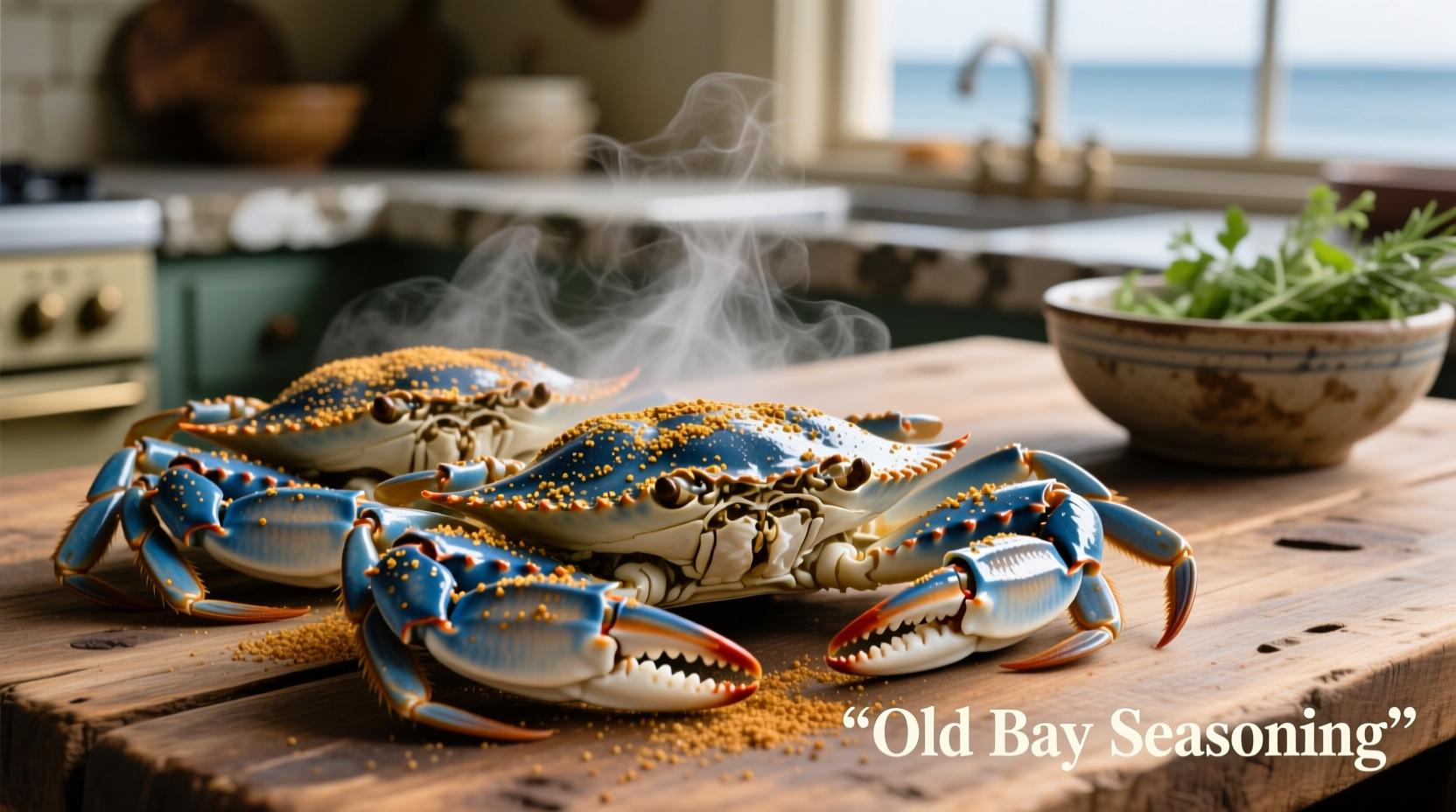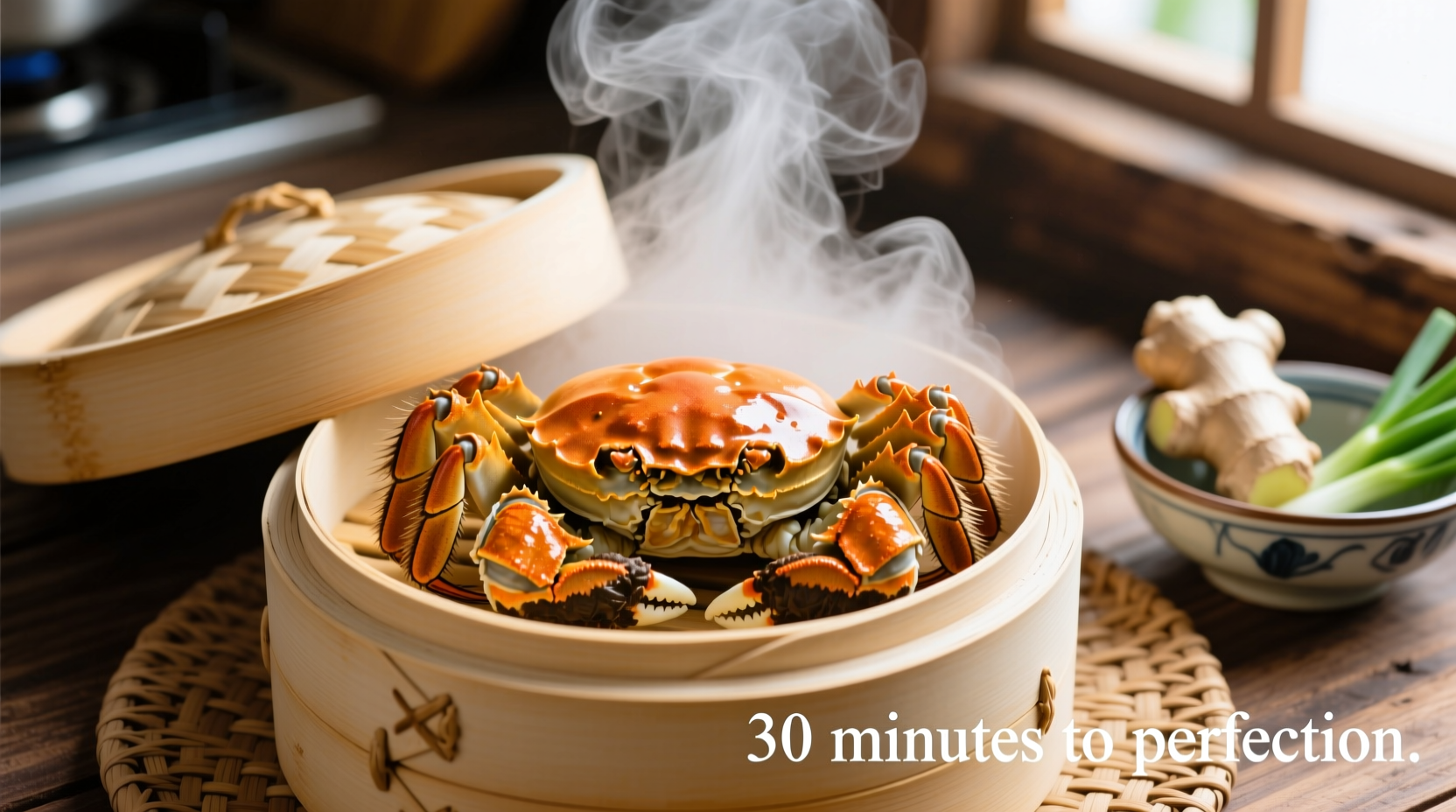Steam live crabs for 15-20 minutes depending on size: small crabs (<1 lb) need 15 minutes, medium (1-1.5 lbs) require 17-18 minutes, and large crabs (>1.5 lbs) need 20 minutes. Properly cooked crabs turn bright red with opaque meat that flakes easily when tested.
Getting steamed crabs perfectly cooked requires precise timing and attention to detail. Whether you're preparing Maryland blue crabs, Dungeness, or snow crabs, understanding the exact steaming duration prevents rubbery meat or undercooked seafood. This guide delivers professional chef-tested timing guidelines based on crab size, species, and equipment—plus visual doneness indicators most home cooks miss.
Essential Preparation Before Steaming
Before you start your timer, proper preparation ensures even cooking. Clean live crabs thoroughly under cold running water, removing any debris from shells. Many coastal chefs recommend briefly chilling crabs in the freezer for 15 minutes to minimize movement during handling—a technique validated by Maryland Sea Grant Extension for safer preparation.
For authentic flavor, layer your steamer pot with aromatic ingredients. While regional variations exist (Chesapeake Bay chefs often use Old Bay seasoning and beer, while Pacific Northwest cooks prefer seaweed and lemon), the base liquid should always cover the pot's bottom by 1-2 inches. This creates sufficient steam without boiling the crabs.
| Crab Size | Weight Range | Steaming Time | Visual Indicator |
|---|---|---|---|
| Small | Under 1 lb | 15 minutes | Shells turn bright red, leg joints separate slightly |
| Medium | 1-1.5 lbs | 17-18 minutes | Deep orange-red color, meat opaque at thickest point |
| Large | Over 1.5 lbs | 20 minutes | Vibrant red throughout, claws detach with gentle pressure |
Step-by-Step Steaming Process
Follow these steps for restaurant-quality results every time:
- Bring your seasoned liquid to a rolling boil in a large pot with steamer basket
- Place crabs in the steamer basket, leaving space between them for steam circulation
- Cover tightly and start timer immediately after steam escapes the lid
- Maintain medium-high heat—too low won't generate enough steam, too high wastes energy
- Check doneness at minimum time using visual indicators, not just the clock
According to USDA Food Safety guidelines, seafood must reach 145°F (63°C) internally for safe consumption. While crabs don't require thermometer testing like fish fillets, undercooked crabs remain translucent and potentially unsafe. Overcooked crabs become tough and lose their delicate sweetness—timing precision is critical.

Doneness Indicators Beyond Timing
Timing provides a baseline, but visual and tactile cues confirm perfect doneness:
- Color transformation: Shells change from blue-green to vibrant red-orange
- Meat opacity: Test a leg joint—meat should be completely opaque, not translucent
- Aroma: Sweet, oceanic scent intensifies without becoming fishy
- Texture: Meat should flake easily with gentle pressure but remain firm
Regional chefs emphasize these contextual factors affecting cooking time:
- Crab species: Blue crabs cook faster than denser Dungeness varieties
- Live vs. pre-cooked: Frozen or previously cooked crabs need only 5-7 minutes to reheat
- Altitude adjustments: Above 3,000 feet, add 5 minutes to compensate for lower boiling point
- Batch size: Overcrowding adds 3-5 minutes per layer—never stack crabs
Troubleshooting Common Issues
Even experienced cooks encounter these steaming challenges:
Problem: Crabs are undercooked despite correct timing
Solution: Your steamer likely lacked sufficient steam circulation. Ensure water maintains a vigorous boil throughout cooking and avoid lifting the lid frequently.
Problem: Meat is tough and dry
Solution: Overcooking is the culprit. Set a timer for the minimum recommended time and check frequently. Crabs continue cooking from residual heat after removal.
Problem: Inconsistent doneness in same batch
Solution: Size variation causes this issue. Sort crabs by weight before cooking and process in separate batches if size differences exceed 0.5 lbs.
Serving and Storage Guidelines
Remove crabs immediately when done and serve within 10 minutes for peak flavor. For best results, let them rest 5 minutes covered in a warm spot—this allows residual heat to complete the cooking process without overexposure to steam.
Leftover crabs should be refrigerated within 2 hours. Store whole cooked crabs in airtight containers for up to 2 days. For longer storage, pick the meat and freeze in vacuum-sealed bags for up to 3 months. Never refreeze previously frozen crab meat.











 浙公网安备
33010002000092号
浙公网安备
33010002000092号 浙B2-20120091-4
浙B2-20120091-4